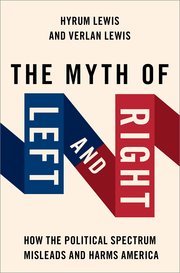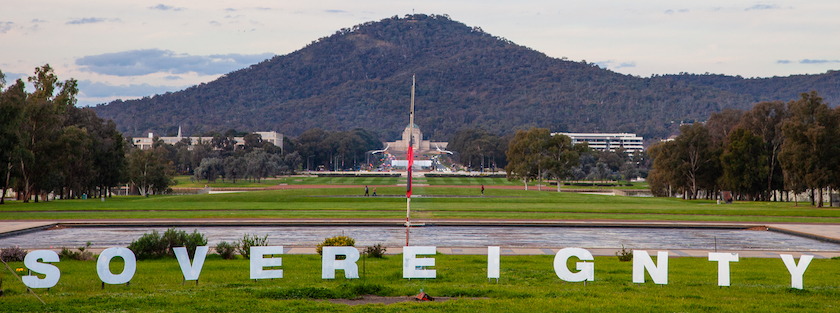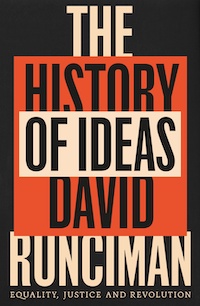Public ideas
Is the left-right spectrum past its use-by date?
Where would we put Donald Trump on the “left-right” spectrum? Like the communists of earlier days he rails against the “elites” and his appeal is to those who have not shared in the economic surplus of capitalism.
Where would we place the Liberal Party, with its opposition to market-based approaches to climate change, and its preference for a Soviet-style state-owned big nuclear program?
On the ABC’s Future Tense program Antony Funnell puts to three political scientists the question Why in the 21st century are we still talking about the political Left and Right? (30 minutes).
They explain that the idea of a unidimensional political spectrum goes back to the French Revolution, when the terms “left” and “right” referred particularly to ideas about equality. Only last century were the terms imported into other countries. In America the terms “left” and “right” came to describe one’s support for or opposition to Roosevelt’s New Deal, and during the Cold War the term “left” became a pejorative to some, a means of tribal identification to others. In the Reagan era the “right” came to be associated with laissez faire economics – free trade internationally and deregulated markets domestically. Now we see the Republican Trump arguing for harsh trade restrictions and domestic deregulation, ignoring any dissonance in the contrast of those policies.
As Funnell’s guests explain, in a democracy with political parties the rational voter looks at the bundles of policies each party offers, and chooses the bundle closest to his or her preferences. But the idea of a left-right spectrum strips away the complexity and granularity in our political choices.
The two north American panellists, Gregory Millard and Verlan Lewis (author of The myth of left and right: how the political spectrum misleads and harms America), acknowledge the dominance of the left-right spectrum in political life. A slightly different, European, perspective is from Simon Otjes of the Netherlands. He points out that in European countries with a recent authoritarian history, such as Portugal and the ex-communist east European countries, people find that the left-right spectrum does not align with the way they see politics.

Although they do not take that point further, there is probably a spectrum of authoritarianism vs freedom, as we are seeing in the Trump-Harris campaign, and is slowly emerging in Australia as Dutton takes a harder and harder line on crime and security issues.
There are other political spectrums – progressive-conservative, liberal-reactionary and so on – all making for a rich n-dimensional space of political opinion. As Verlan Lewis says on the program “false intellectual frameworks can have really damaging consequences”, and one of those consequences is that we are drawn into tribalism, and become staunch defenders of our tribe, right or wrong. If the other tribe hates my tribe, I respond by hating their tribe.
Last week’s roundup included a reference to the long history of the Voice referendum as recounted by Shireen Morris, a history about a movement that went out of its way to align with the policy principles of those describing themselves as “conservative” or on the right. A reader has reminded me of Morris’s ConversationFriday Essay on the same topic: How an unholy alliance of the separatist left and reactionary right rejected the Voice’s “sensible middle way”.
It’s a case study in the points raised in the Future Tense program. A rational voter may have looked at the groups opposing the voice, the reactionary assimilationists, and hardline indigenous separationists, and decided that a “yes” vote was a sensible position between these two.
But that’s not how the issue played out. It was about Dutton’s tribe versus Albanese’s tribe, with no room for the “radical centre”, even though it was from the centre that the Voice proposal had been negotiated. As Morris writes in the essay “Though there were moments of productive collaboration across divides, political partisanship kicked in as the Voice proposal got legs: ultimately, neither side could tolerate the involvement of the other”.
Morris is particularly critical of those activists who placed themselves on the far left, seeking sovereignty and other measures that went well beyond the Voice’s modest proposals.

Not the most effective message
We don’t know why they took such a stance. Maybe they didn’t care less about political strategy: here was an opportunity to make their point and they naively hoped for something better down the track. Or maybe they were taking a strategic accelerationist line: let the situation get so bad that the whole system will have to be re-built.
Whatever their motivation, the message that came across to many voters was the same: “if even some of the indigenous leaders don’t like it, I’d better vote against it”.
Votes for 6-year-olds?
Political philosopher David Runciman has come to Australia to share his political insights at Sydney’s Festival of Dangerous Ideas, and has also shared them on Late Night Live: David Runciman has a dangerous idea ….(34 minutes).
His most striking idea is that in democracies the franchise should be extended to younger people: he believes six would be the appropriate age. His reasoning is compelling: on the whole people age 6-17 are no less politically incompetent than adults.
He raises this proposition in the context of his observation that western countries are getting older, and that their political systems tend to favour the old. Bringing down the voting age could force politicians, concerned to appeal to the “median voter”, to re-calculate the age of the median voter.
That doesn’t seem to be particularly dangerous. His more confronting observation is that while societies have been changing dramatically, our democratic institutions are rooted in the past, and are looking “tired”.
To many people such conservatism is a virtue. But to many others our democratic institutions have been manipulated by those with power to hold back change that would improve people’s welfare. The power of lobbies comes to mind – the firearms lobby in the USA, the gambling lobby in Australia. So too does the power of unscrupulous politicians who stoop to scare campaigns to block change.
The idea that interest groups learn how to work with democratic institutions to thwart change is not new: it’s covered in depth in Mancur Olson’s 1982 book The rise and decline of nations: economic growth, stagflation, and social rigidities. (It was close to compulsory reading for public servants at the time of the Hawke-Keating government.)
The idea is always worth repeating, particularly at a time when, in so many countries, populists are showing open contempt for democratic institutions, which they portray as the “deep state”, captured by the “elites”.

In this regard Runciman makes the passing observation that whatever we may say about Trump, we cannot say he is a hypocrite. His campaign mode is the same as his administrative mode – WYSIWYG. Hypocrisy is the politicians’ normal working mode, particularly those who have to toe the party line. Hypocrisy is corroding democracy, because it damages public trust, and makes way for the demagogues who give voice to people’s concerns, even if they have no realistic policies to deal with them.
That may help explain the move in electoral support towards independents in Australia. Has anyone noticed how refreshing it is when a backbencher or an independent member of Parliament raises an issue and a practical idea that members of political parties are too frightened to mention?
Runciman is host of the Past, present future podcast, and his latest book is The history of ideas: equality, justice and revolution.
As for his idea of extending the franchise to 6-year-olds, why not go one step further, and weigh people’s vote according to their statistical life expectancy, which would mean a 6- year old’s vote would have about three times the weight of a 60-year-old. That could result in real progress on climate change, taxation, housing, and education, and would force the Coalition to disappear or reform.